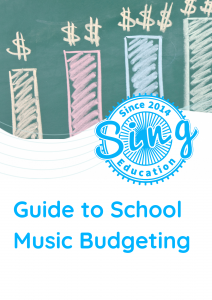
The push for greater music education funding has gained significant traction, with leading artists and organisations calling on the government to increase investment. But how can you budget for music now?


The push for greater music education funding has gained significant traction, with leading artists and organisations calling on the government to increase investment. But how can you budget for music now?
In March 2025, Ed Sheeran, supported by Elton John and other major musicians, urged the UK government to invest £250 million in state school music programs. Sheeran stated, “Music education changed my life, and every child deserves that same opportunity, regardless of their background.” Elton John echoed this sentiment, adding, “Investing in music education is investing in the future—creativity, mental well-being, and community cohesion all depend on it.” Their campaign underscores research showing that music education enhances cognitive development, boosts academic performance, and supports mental health, particularly in underprivileged areas. (Source: The Guardian, 2025).
Music education is a cornerstone of a well-rounded curriculum, fostering creativity, teamwork, and cognitive development in young learners. However, with ever-tightening school budgets, ensuring high-quality primary music education can be a challenge.



In 2025, UK schools continue to benefit from several government and nonprofit funding initiatives aimed at bolstering music education.

While funding opportunities exist, schools must navigate financial constraints carefully to maintain robust music programs.
Rising staff costs and overall budget restrictions require schools to be strategic in their spending. Recent discussions around cutting £500 million from the education budget, including reductions in arts funding, have highlighted the need for advocacy and fundraising. (Source: The Times, 2025).
To continue providing high-quality music education, schools should take a proactive approach:



Looking ahead, the future of music education in primary schools will depend on sustained investment and strong advocacy. Research continues to show that music plays a crucial role in child development, improving language skills, memory, and social interaction. Schools must work collaboratively with policymakers, educators, and artists to ensure that music remains a priority in the curriculum. As Ed Sheeran aptly put it, “If we don’t invest in music education now, we risk losing the next generation of musicians and creatives who could shape our world.” (Source: The Guardian, 2025).
By leveraging available resources and advocating for sustained investment, schools can ensure that music remains a vibrant and integral part of primary education. Music not only enriches students’ lives but also strengthens school communities, making it a sound investment for the future.
